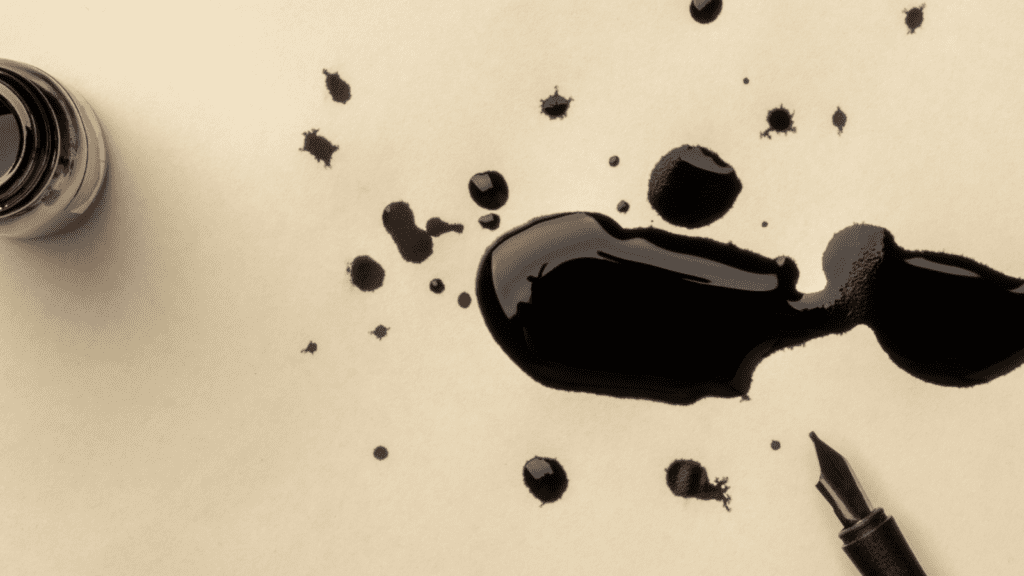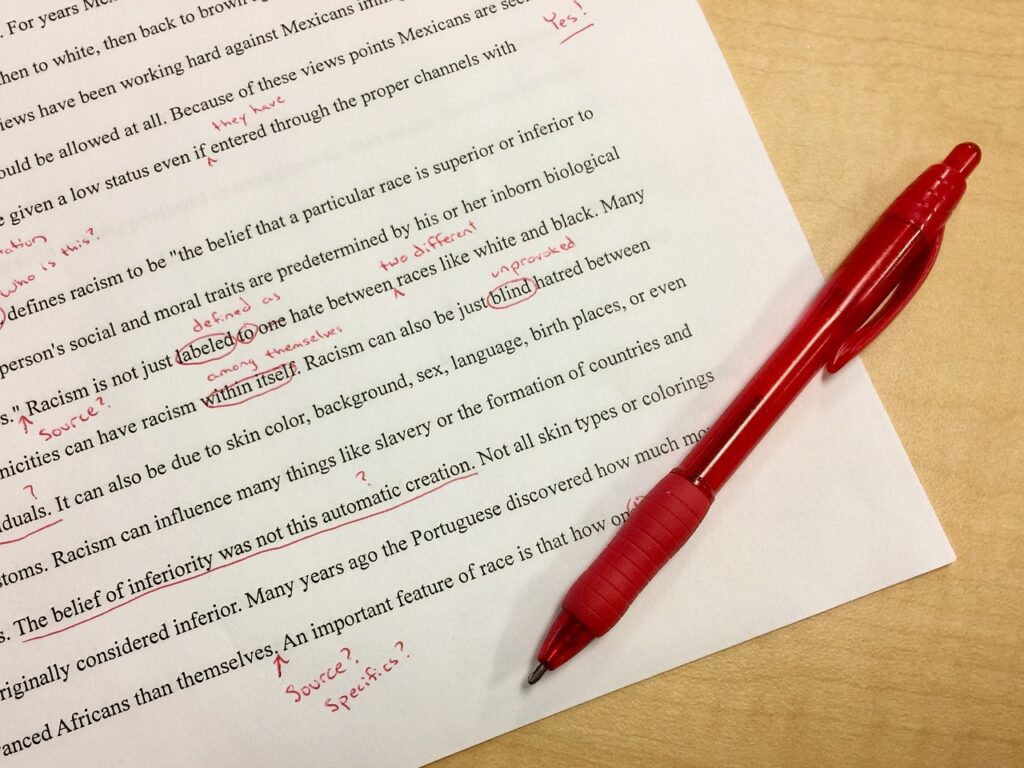4 Bad Writing Habits That Make Drafts Worse
Most writers who want to get better at their craft ask themselves what they can add to their process or strategy. That trend probably comes from our cultural tendency to favor expansion rather than reduction when improvements are necessary. (You don’t see many companies slimming down their product features, do you?) We’re always wondering what gap we have in the craft and what’s available to fill it. But looking for what you can eliminate can lead to growth, too. Because you can find a plethora of other posts online that talk about technical faux pas (e.g., using clichés) to ditch, below, you’ll find what I consider to be the bad writing habits to watch out for that potentially can make writing worse.

1. Endless revision
By this, I don’t mean you shouldn’t make changes or polish your work. It routinely takes multiple drafts to get a story or message right. But at a certain point, additional revision can start eliminating the cohesiveness of the piece or even create new problems. You can start mentally losing track of what’s still included. Not only that, but if you’re using beta readers (you should be), they’re likely going to have questions and comments every time you give them a new version. You can get yourself into a cycle where there’s always something new to address. As a result, sticking to deadlines and the clarity of your plot/thesis is harder.

Easy fix: Set a clear limit on how many drafts you’ll go through or the time you will accept feedback. Use a simple checklist of revision goals for each draft. The checklist will ensure you don’t get pulled into the weeds and have a way to verify success.
2. Thinking too much of the audience
Yes, you have to acknowledge your what your reader expects, wants, and has experienced. But too much bias in their favor can choke the originality of your voice. It’s can censor your message to make it less effective. There thus has to be a balance between respecting the reader and respecting yourself.

Easy fix: Identify the percentage of your work that you are comfortable modifying. Ask yourself: Are changing it so others will accept the piece? Or are you changing it to enhance the work in a way that holds to your truth? Clarify the values you have and the core points you must make prior to writing. Look to ensure those values and points are still there through the editing process.
3. Copying other writers
You do need to read other writers. But it’s not so you can copy them. It’s so they can trigger parts of yourself that are already there. Every time you expose yourself to new work, you can get tools that allow you to express in a more authentic way. Picking up these tools typically is a subconscious task. Your growth thus will be slow, incremental, and difficult to attribute to specific authors. If you can identify specific tools you admire from a writer, the goal should be to apply those tools in a way that’s all your own.
Simply copying someone else on purpose because you want to be successful and well-known like they are, however, is a massive mistake. It forces you to filter everything you want to say through their voice, which stunts the development of yours. Because you aren’t true to yourself, the attempt at copying likely will seem clunky and inconsistent.

As an initial caveat, don’t be afraid to intentionally try to copy a writer as an exercise solely for the purpose of appreciation and understanding. As an example, I once tried to write a prompt like Hemingway — short and punchy. His cadence is not “wrong,” but it certainly does not feel natural to me. I’m much more at home reading someone like Victor Hugo or Charles Dickens. Still, the exercise showed me ways I could tighten my work without abandoning my own rhythm. And just like you can appreciate French a little more walking in Paris, I can appreciate Hemingway’s dance having tried to go through his steps.
As a second caveat, gurus often advise article writers to tailor their pieces to the tone of the publications they submit to. I see this as an invitation to erase your own originality. That’s especially true if you end up writing for the publication regularly and are pressured to follow a formula (particularly for clickbait-y headlines). At best, you create inconsistency. What you write for one publication isn’t going to sound like what you wrote for another. My ideal thus is for writers to create their drafts and then find potential publications that might be interested in the draft with the tone it already has.
Easy fix: Instead of thinking, “I want this to sound like [Some Other Writer],” write your message in a few different ways. Then identify which one feels the most authentic to you. Be specific about what’s in that draft that you like.
4. Strict writing routines
I’m a strong proponent of setting time aside on your calendar to write once you know how long the necessary tasks are going to take. Without this type of commitment, drafts rarely get done.

But I’ve seen it happen over and over again. Writers get so married to the calendar that they sacrifice the quality of their creativity. They rush the process, trying to meet a quota instead of truly waiting for the right direction or concept. Even worse, if you find yourself unable to adhere to your plan, you even can get tied up in stressful guilt and internal pressure to “make up” the “lost” time, which then further can inhibit your writing. That’s why if I’ve said it once, I’ve said it a hundred times. Forced writing is bad writing. Avoid it like the plague.
Easy fix: Set time aside to write. But have more than one writing project to work on. If you’re stuck on one project, allow yourself to move to another so you don’t waste the dedicated time. If nothing at all comes and you are not in a good mindset, do writing-related tasks that don’t require working on the draft, such as organizing your files or researching agents. Alternatively, give yourself a handful of “spillover” appointments so if you have to miss a regular writing session, you know can make it up later without stressing out.
Part of becoming a better writer is identifying good habits you can adopt. But it’s just as important to identify and eliminate the bad writing habits that hold you back. If you see these issues in your own routine, test the suggested fixes and leave me a comment on Instagram to let me know what results you see.
Image credits:
Plateresca from Getty Images Pro
Anne Karakash from Pixabay
Nico Franz from Pixabay
Klaus Aires Alves from Pixabay
Marijana from Pixabay